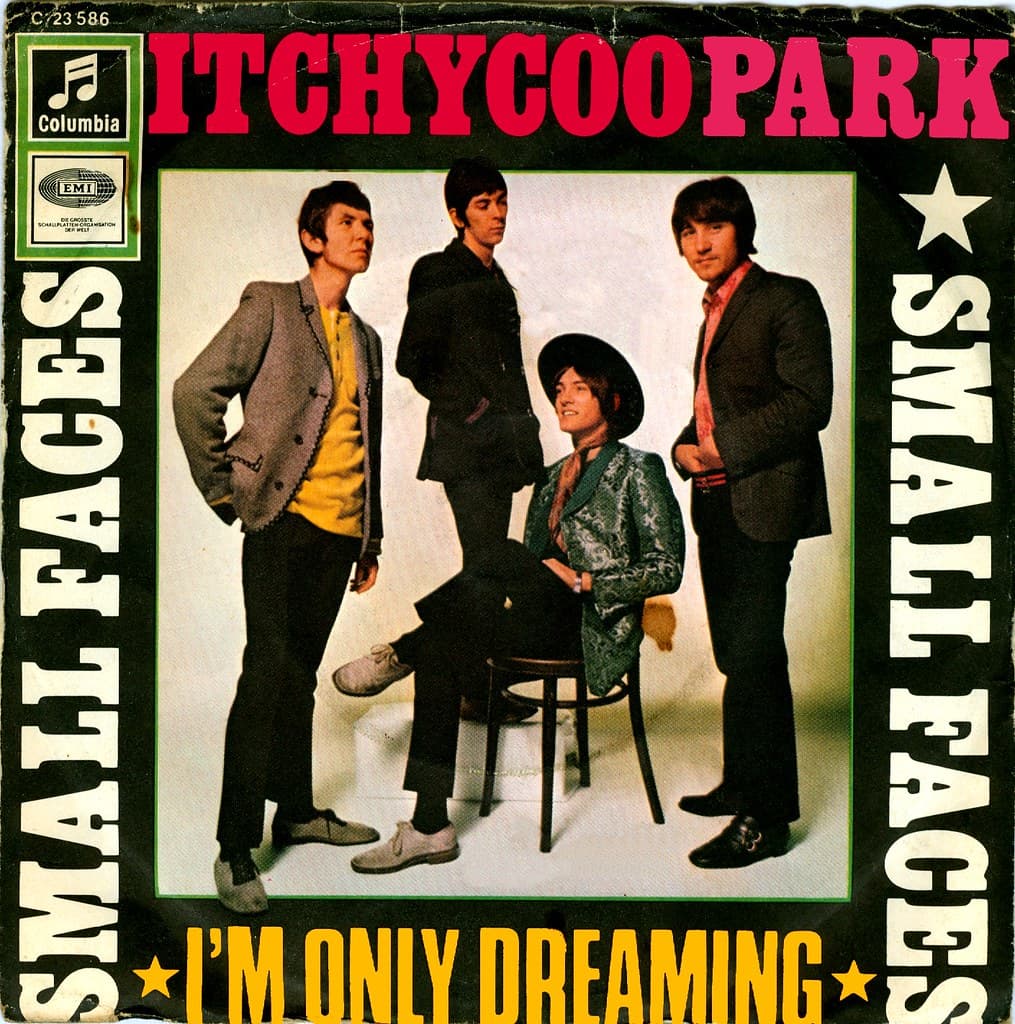
The Small Faces – Itchycoo Park: A Psychedelic Ode to Youthful Escape
Itchycoo Park by The Small Faces is a quintessential anthem of the Summer of Love, encapsulating the spirit of 1967 with its playful lyrics, inventive production, and dreamy melodies. Written by the band’s Steve Marriott and Ronnie Lane, the track blends carefree exuberance with the mind-expanding ethos of the psychedelic era, crafting a timeless piece of musical escapism.
The song opens with a jangling guitar riff that immediately draws the listener into its whimsical world, soon joined by Marriott’s charismatic, cockney-inflected vocals. Itchycoo Park feels like a conversation, a laid-back invitation to join a journey of discovery and delight. The lyrics describe a utopian retreat—likely inspired by the verdant spaces of East London—where the mundanity of daily life melts away in favor of nature, laughter, and shared experiences.
Yet the charm of Itchycoo Park isn’t confined to its lyrics or melodies. It’s one of the earliest pop songs to feature flanging, an innovative studio effect that creates a swirling, phasing sound. This sonic texture amplifies the song’s dreamlike quality, capturing the essence of a psychedelic daydream. The line “It’s all too beautiful” spirals into a euphoric refrain, its repetition a mantra of liberation and joy.
While the park itself is often debated as metaphorical, Marriott and Lane insisted the song was inspired by real-life escapes to nature, with “itchycoo” humorously referencing stinging nettles common in rural England. The carefree abandon of the lyrics masks an underlying depth—a nod to the freedom and rebellion of youth against societal constraints, themes resonant with the cultural shifts of the late 1960s.
Upon its release in August 1967, Itchycoo Park quickly climbed to No. 3 on the UK Singles Chart, securing The Small Faces a prominent place in pop history. It also found unexpected success in the United States, reaching No. 16 on the Billboard Hot 100—a rarity for British bands not named The Beatles or The Rolling Stones. Its success solidified The Small Faces as icons of the mod and psychedelic movements.
In subsequent decades, Itchycoo Park has enjoyed a lasting legacy. A 1975 reissue saw it return to the UK Top 10, reigniting interest in the band’s catalog. Cover versions, such as M People’s 1995 dance interpretation, introduced the song to new generations, while its use in films and advertising has ensured its cultural relevance.
Ultimately, Itchycoo Park endures as a celebration of life’s simple joys, an invitation to step away from the ordinary and embrace the extraordinary. With its effervescent charm, groundbreaking production, and jubilant spirit, it remains a kaleidoscopic snapshot of a transformative era in music and culture.